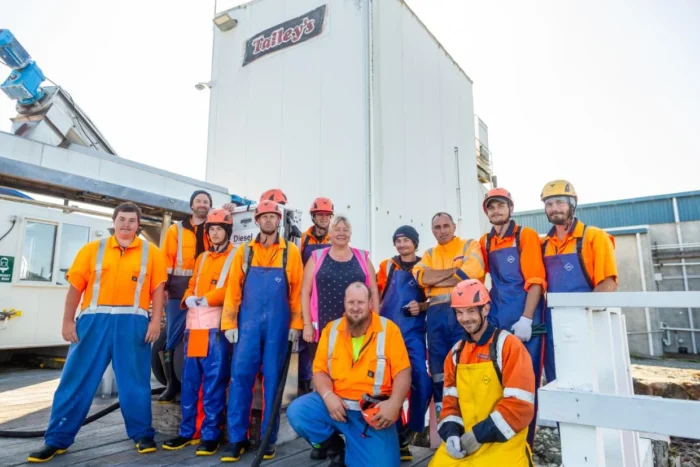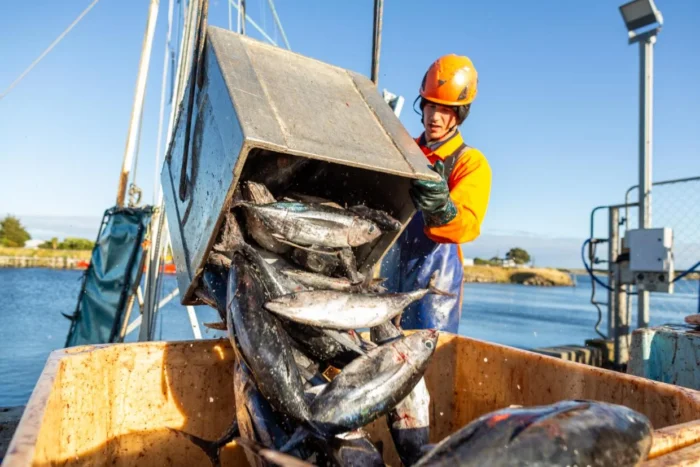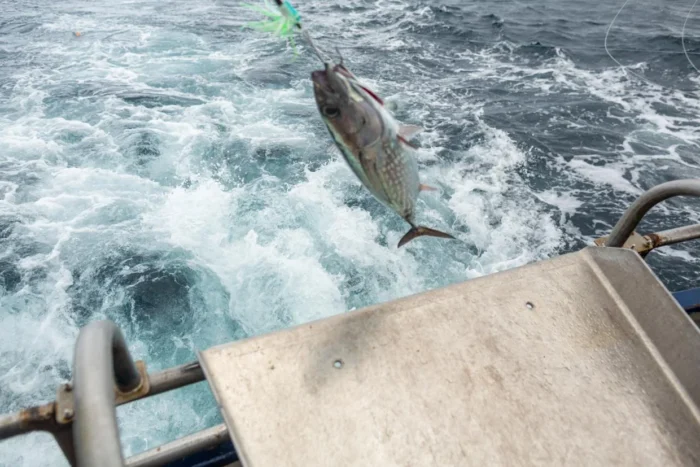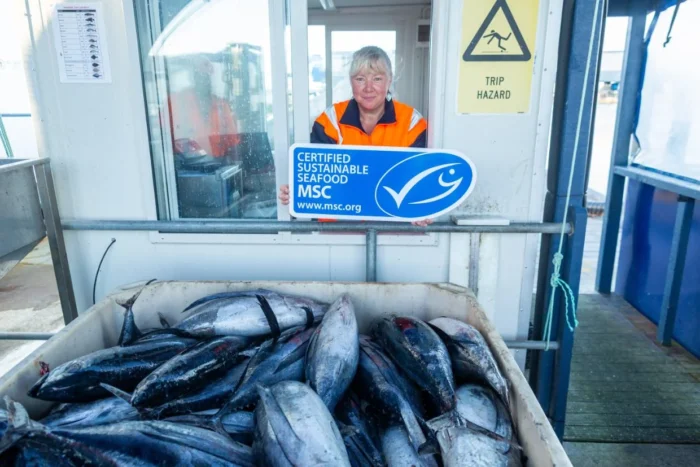Beyond the catch: The untold story of Kiwi fishers
Published on Stuff.co.nz 7 April 2025. Content provided by Marine Stewardship Council.

New Zealand has long been a leader in sustainable fishing, with more than 50% of its wild-caught seafood certified to the Marine Stewardship Council (MSC) standard. Seafood companies and fishermen understand the importance of independent, internationally recognised certification standards for their customers and their consumers further afield.
Yet the story of New Zealand’s albacore tuna fishery – an often overlooked industry – remains largely untold. The hardworking fishers who bring albacore tuna to the global marketplace are more than just harvesters of the sea; they are guardians of a resource that sustains both livelihoods and ecosystems.

New Zealand’s albacore fishers balance economic needs with environmental responsibility to sustain marine resources.
A commitment to sustainability
For Cheyanne Amai, branch manager at Talley’s Westport, sustainability is not just a buzzword.
“Preserving fish stocks ensures we’re providing for future generations,” she says.
Indeed, the albacore fishery is built on careful practices that maintain both the quality of the catch and the health of the ocean. New Zealand’s albacore tuna is caught using small, owner-operated vessels, with each fish brought aboard individually by using traditional hand-lining methods.
This approach minimises bycatch, reduces environmental impact and ensures the highest quality product reaches consumers.
Owner/Skipper Jason McKay, who has been fishing since the 1980s, explains the hands-on nature of the work: “We use two poles on either side of the boat, each with five hand lines. Every fish is caught one at a time, unhooked, and placed straight on ice. It’s simple, sustainable, and quite fun,” he says.

New Zealand’s small, owner-operated vessels prioritise sustainable practices to protect marine ecosystems.
The role of the MSC
The Marine Stewardship Council plays a crucial role in ensuring New Zealand’s fisheries remain among the best-managed in the world.
“The MSC helps keep us accountable, reminding us how important responsible and sustainable fishing is”, says McKay.
Independent certification ensures sustainability is more than just an industry claim because it’s a verified standard that consumers can trust.
Doug Saunders-Loder, President of the Tuna Management Association, highlights the significance of MSC certification. “It’s essential for accessing international markets. Without it, we wouldn’t be able to sell our fish overseas, certainly not at any economic level,” he says.
The rigorous MSC standard requires fisheries to continuously improve, ensuring that biodiversity is protected and fish stocks remain healthy for the future.

Albacore fishers use traditional hand-lining methods to ensure minimal bycatch and maximum quality.
A tradition of hard work and innovation
New Zealand’s albacore fishers are not only dedicated to their craft but are also deeply connected to the environment in which they work.
For Ben Lee, a skipper with Talley’s, fishing in New Zealand waters is a breathtaking experience. “You see things most people never do – whales, dolphins, bioluminescence. The ocean is alive, and I feel obliged and responsible to look after it,” he says.
Fishing in the open ocean comes with its challenges though. Changing sea conditions, rising costs, and the movement of fish caused by a multitude of variations, like climatic conditions or natural seasonal patterns, mean adaptability is key. But through collaboration, innovation and a steadfast commitment to sustainability, New Zealand’s albacore fishery continues to thrive.

Marine Stewardship Council certification ensures New Zealand’s fisheries meet strict sustainability standards.
Choosing a sustainable future
Overfishing is a major threat to wildlife, food security and livelihoods, making sustainable fisheries more important than ever. While over a third of global fish stocks are overfished, over half of New Zealand’s fish stocks are MSC-certified sustainable. New Zealand’s albacore fishers showcase how responsible fishing practices can successfully balance economic priorities with environmental stewardship.
For consumers, the MSC’s sustainable seafood tick is a simple way to support sustainable fishing, ensuring their seafood dinner has been caught in a way that protects the ocean for generations to come.
From ocean to plate, the story of New Zealand’s albacore fishers is one of passion, resilience and sustainability. Their work makes sure this valuable resource remains abundant well into the future.
Visit www.msc.org/nz to learn more about sustainable fishing and how you can make a difference by choosing MSC-certified seafood by looking for the MSC blue fish tick label when shopping for seafood.
